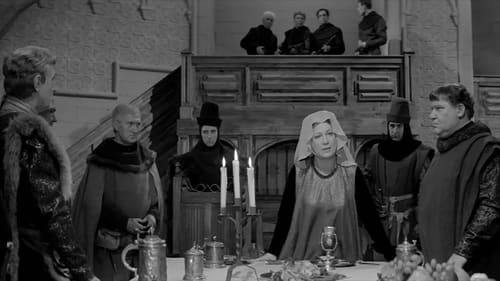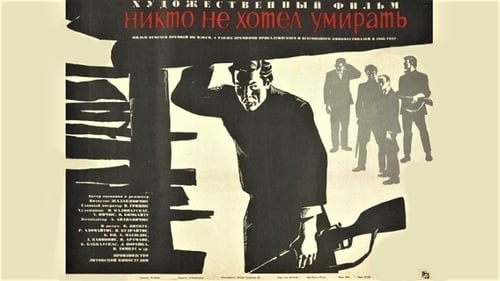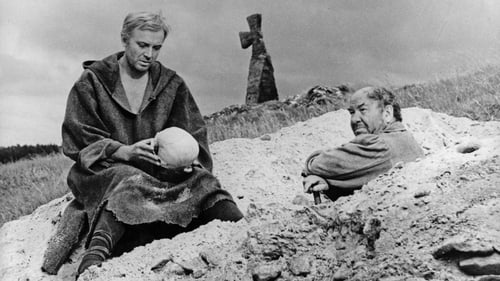Jonas Gricius
출생 : 1928-08-05,
약력
Jonas Gricius was born on August 5, 1928 as Jonas Augustino Gricius. He is a cinematographer and actor, known for Nobody Wanted to Die (1966), Gyvieji didvyriai (1960) and The Blue Bird (1976).

Bruto
Movie inspired by classical story "Kunigo naudą velniai gaudo" by Lithuanian writer Žemaitė. Written in 1903 story reborn in cinemas after more than 100 years.

Director of Photography
An isolated village in the Lithuanian countryside. Seated in her house, an elderly woman recites an old folk story. Then she climbs up the tall ladder that takes her to the rooftop of the church.

Director of Photography
Evolving grim drama of love and wealth. The action takes you to the pre-war and shows the different social strata in rural life, everyday life, passions.

Director of Photography

Director of Photography
An examination of the trials and tribulations of the Jordache family, from the period following World War II to the late 1960s.

Camera Supervisor
"Travel to Paradise" - The rich widow Marta Anker, owner of a renowned trading company, loves the poor fisherman Ansą Balčiai. The locals keep the ongoings under close watch.

Director of Photography
Two stories about the relationships between the peasants and the noblemen in a Lithuanian village during the period of feudalism.

Director of Photography
King Lear, old and tired, divides his kingdom among his daughters, giving great importance to their protestations of love for him. When Cordelia, youngest and most honest, refuses to idly flatter the old man in return for favor, he banishes her and turns for support to his remaining daughters. But Goneril and Regan have no love for him and instead plot to take all his power from him. In a parallel, Lear's loyal courtier Gloucester favors his illegitimate son Edmund after being told lies about his faithful son Edgar. Madness and tragedy befall both ill-starred fathers.

Cinematography
Under the USSR oppression a family breaks up and its members find themselves on opposite sides of the barricades. Based on the Mykolas Sluckis' novel, the film tells the story of a dramatic and painful reality of the post-war Lithuania.

Director of Photography
The film is set in Lithuania after the Second World War. It shows dramatic events in a small Lithuanian farming community, where people are split between the Soviets and the "brothers in the woods", who are fighting to defend their land from the Soviets after the end of the Second World War.

Cinematography
The movie, based on a story by Yuri Nagibin, depicts a young girl named Vika enjoying the last days of summer vacations in a sea resort somewhere in the south.

Cinematography
Shakespeare's 17th century masterpiece about the "Melancholy Dane" was given one of its best screen treatments by Soviet director Grigori Kozintsev. Kozintsev's Elsinore was a real castle in Estonia, utilized metaphorically as the "stone prison" of the mind wherein Hamlet must confine himself in order to avenge his father's death. Hamlet himself is portrayed (by Innokenti Smoktunovsky) as the sole sensitive intellectual in a world made up of debauchers and revellers. Several of Kozintsev directorial choices seem deliberately calculated to inflame the purists: Hamlet's delivers his "To be or not to be" soliloquy with his back to the camera, allowing the audience to fill in its own interpretations.

Director of Photography
Vabalas’s thesis film “Footsteps in the Night” (1962) portrays Kaunas in 1943, occupied by the German army. Alex, who recently returned to the city, tries to join the anti-Nazi resistance, but is captured and imprisoned. He soon starts planning his escape. Even though the screenplay was forced on him by his superiors, Vabalas managed to avoid creating an overly-heroic film. Instead, his work is filled with tension and complex characters. The film involved one of the most memorable scenes in Lithuanian cinema, portraying prisoners dancing by the fire. (Kino Pavasaris)

Director of Photography
A lithuanian village just after the end of the second World War: Neither German nor Russian its inhabitants must, despite their wounds, find new craft to dream of a better future ahead of them.

Cinematography
Four different stories about young kids' destinies in different time periods in Lithuania.

Assistant Director of Photography
The young machine operator Fyodor Soloveikov marries Stesha from a neighboring village and moves to live with her parents in a house. Young and energetic, he suffocates in the petty bourgeois world of the family, living away from collective farm life. Quarrels arise between young people, where old men pour oil of discord. Not receiving proper support from his wife, Fyodor leaves home.














